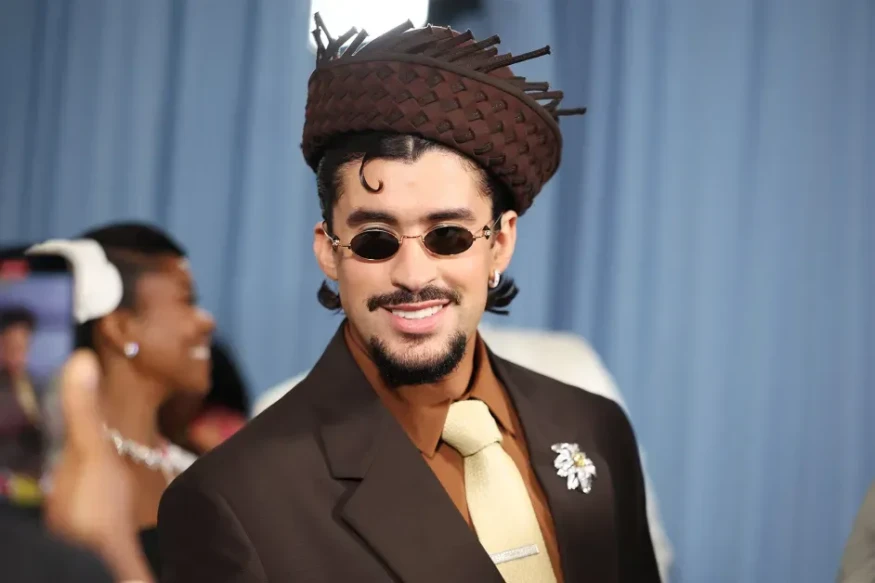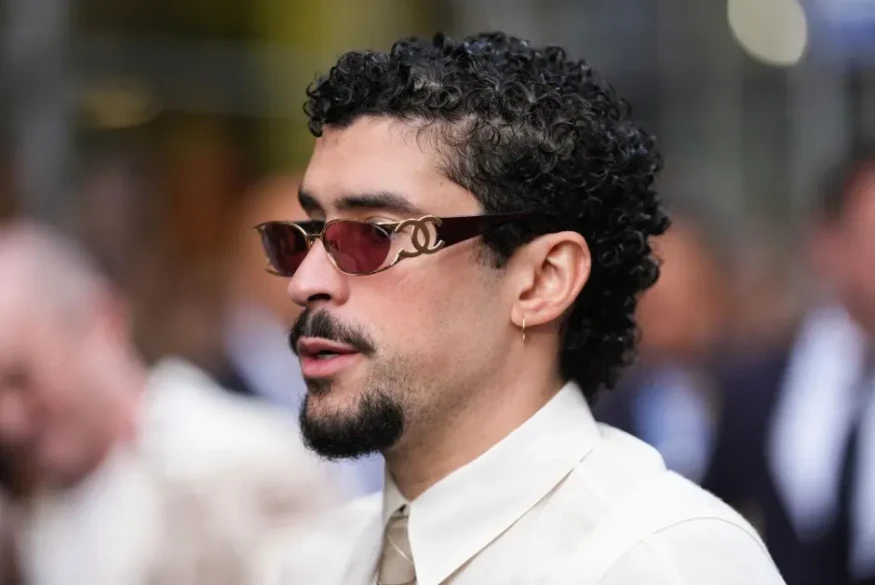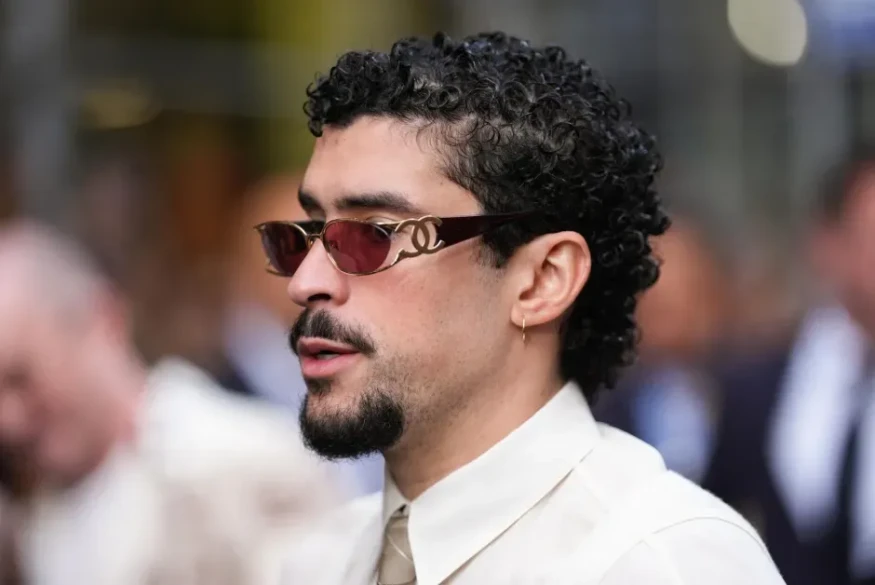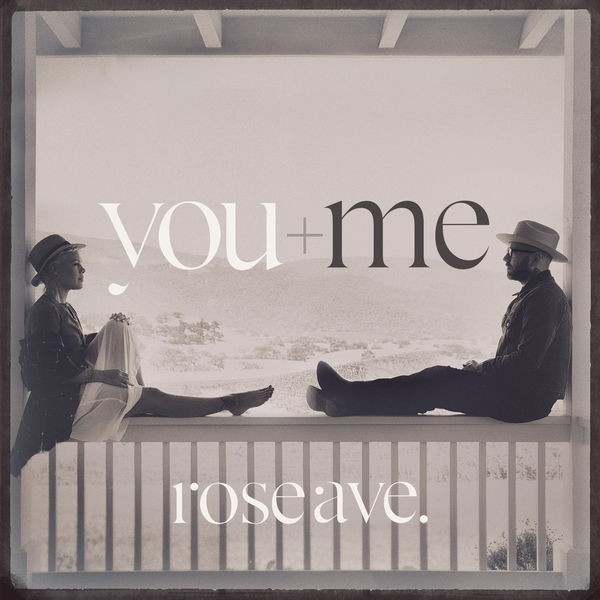
Donald Trump says he’s never heard of Bad Bunny, just days after the Latin superstar was announced as the Super Bowl 2026 Halftime Show headliner. The remark sparked debate across pop culture circles and highlighted once again how the worlds of politics and music collide
The Super Bowl 2026 hasn’t even kicked off yet, but Bad Bunny has already managed to steal the spotlight — and spark one of the most talked-about pop culture moments of the year. Just days after the announcement that the Puerto Rican superstar will headline the iconic Halftime Show, Donald Trump made headlines of his own when he claimed, “I don’t know who that is.” The comment, delivered during a phone interview on NewsMax, instantly went viral, unleashing a wave of reactions across social media and reigniting the ongoing collision between politics and pop culture.
As fans around the world celebrate the news of Bad Bunny’s upcoming Super Bowl performance, Trump’s remark has left many people rolling their eyes. When asked about the singer, the former president bluntly stated, “I have no idea who he is. Never heard of him. It’s all madness.” Within minutes, the quote spread like wildfire, sparking a social media storm filled with memes, laughter, and, of course, the kind of heated debate that seems to follow every Trump comment.
The timing couldn’t have been more deliberate. Bad Bunny’s name had just been revealed as the headline act for the 2026 Halftime Show, a milestone moment for both Latin music and the NFL. It’s a decision that reflects the growing influence of Latin pop culture around the globe — and one that, apparently, Trump couldn’t resist weighing in on. During the same conversation, NewsMax host Greg Kelly jokingly referred to him as “the Bad Bunny Rabbit or whatever his name is,” setting the tone for the dismissive exchange that followed.
Trump went on to link Bad Bunny’s involvement to Roc Nation, Jay-Z’s entertainment company that helps organize the Halftime Show. “Then they blame the promoter who chose the artist. It’s absolutely ridiculous,” he added, continuing his long-standing criticism of anything tied to the entertainment industry. But this time, his attempt to downplay the significance of the performer didn’t land as intended. Instead, it triggered a flood of online reactions defending Bad Bunny’s global impact — and reminding everyone that his reach extends far beyond the borders of music.
Bad Bunny, who boasts nearly 80 million monthly listeners on Spotify, is hardly an unknown name. Ranked among the most streamed artists in the world, he dominated global charts from 2020 through 2022 before being surpassed by Taylor Swift in 2023 and 2024. His fusion of reggaeton, trap, and political consciousness has made him one of the defining voices of modern Latin music, while his stage presence has cemented him as a true icon of contemporary pop culture. So, when Trump said he had “never heard of him,” fans couldn’t help but find the comment amusing — and a little out of touch.
The backlash from social media was immediate. Hashtags like #BadBunnySuperBowl and #WhoIsBadBunny trended worldwide, with fans posting side-by-side photos, concert clips, and performance stats that showcased the artist’s global appeal. For many, the moment became another example of how generational and cultural divides shape conversations about fame and identity. The internet, of course, turned the whole exchange into comedy gold — but behind the laughter, there was a sense of pride from fans who view Bad Bunny as a cultural ambassador for Latin music.
Even mainstream media outlets jumped into the discussion, pointing out that Bad Bunny isn’t just another pop star — he’s a movement. His concerts are events that blend activism with entertainment, his lyrics speak about independence and representation, and his style constantly challenges gender norms. Every project he releases sparks conversation, not just for its music but for the message it carries. His sold-out “No Me Quiero Ir de Aquí” tour in Puerto Rico broke records for ticket sales, and the livestream of his final show became the most watched concert ever on Amazon Music.
It’s no surprise, then, that he’s now set to make history as the first solo Latino performer to headline the Super Bowl Halftime Show. It’s a landmark moment for representation, one that aligns perfectly with Bad Bunny’s career-long mission to elevate Latin culture on the global stage. But not everyone seems thrilled. Several conservative commentators in the U.S. criticized the choice, with Trump’s former campaign manager Corey Lewandowski calling it “embarrassing” and claiming that the artist “seems to hate America.” Ironically, Lewandowski appeared unaware that Bad Bunny is from Puerto Rico — which, of course, is part of the United States.
The controversy didn’t end there. Following Lewandowski’s comment, Homeland Security Secretary Kristi Noem publicly stated that there would indeed be “ICE agents everywhere” at the Super Bowl, a remark many saw as a politically charged jab disguised as a security measure. The whole situation quickly evolved into a media spectacle, described by several outlets as a “cultural battlefield” where pop music, politics, and identity collided in real time.
But Bad Bunny, true to form, handled it all with charm and wit. During his guest appearance on Saturday Night Live — where he hosted and performed — he addressed the situation with a grin. “I’m performing at the Super Bowl Halftime Show, and I’m very happy. I think everyone’s happy — even at Fox News!” he joked, earning roaring laughter from the studio audience. Then, switching to Spanish, he spoke passionately about the importance of representation and what it means for the Latin community to see one of their own take the biggest stage in American entertainment. He ended with a playful line that became instantly iconic: “If you didn’t understand what I just said, you have four months to learn!”
That quip alone sent social media into overdrive. Within minutes, clips from the show flooded Twitter, TikTok, and Instagram, with fans declaring that only Bad Bunny could deliver such a cool, effortless comeback to a former president. The hashtags #LearnSpanish and #BadBunnySuperBowl shot to the top of trending lists, while entertainment journalists praised him for turning a potentially negative moment into pure PR genius.
In the days that followed, the ripple effect was undeniable. Streams of his recent single “DeBÍ TiRAR MáS FOToS” surged by more than 30%, and his music sales jumped across every major platform. For Bad Bunny, controversy once again proved to be opportunity. The timing couldn’t be better — just months before he takes the Super Bowl stage in front of hundreds of millions of viewers around the world.
As for Trump, this isn’t the first time he’s tried to stir up attention by commenting on pop culture events. Whether intentionally or not, his remarks often end up amplifying the very people he criticizes. And in this case, his “I don’t know who that is” comment may have done more to boost Bad Bunny’s visibility among new audiences than any marketing campaign could. The irony wasn’t lost on fans, who joked that Trump had unknowingly joined Bad Bunny’s promo team.
In reality, the entire episode underscored just how powerful Bad Bunny’s influence has become. His name transcends genres, languages, and borders. He’s an artist who blends music with identity, fun with meaning, and fame with social awareness. To millions, he represents a new kind of celebrity — one who doesn’t just perform but challenges and inspires.
And if there’s one thing this story proves, it’s that even when someone claims they “don’t know who he is,” Bad Bunny doesn’t need an introduction. He’s already conquered the charts, the stadiums, and soon, the Super Bowl stage — all while staying unapologetically himself.







